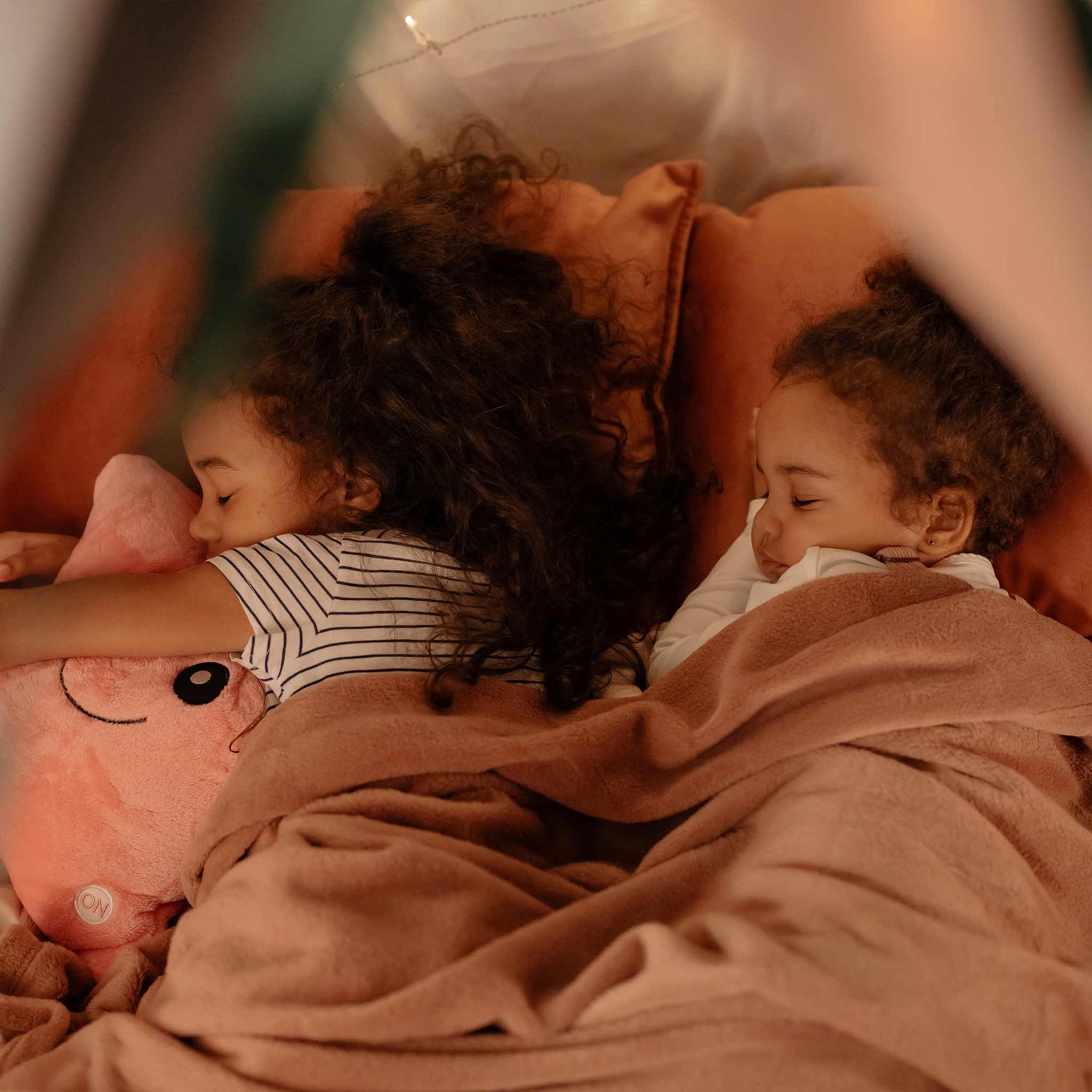-
What are the signs and symptoms of insufficient sleep?
- Problems paying attention and poor school performance
- Outbursts and unnecessary crying
- Constantly sick from a compromised immune system.
- Hyperactivity and impulsiveness (especially in younger children)
- Low energy and lethargy
- Poor mood regulation (often upset and "moody")
- Decreased social skills.
- Falling asleep at school and sleeping during short car rides.
-
Will all kids eventually sleep through the night?
Sleep is a rhythm. There are moments of shallow and deep sleep. The key is to allow the body to rest, recuperate and recover through quality, consistent sleep. Your child will eventually sleep deeper and longer if you implement these steps regularly. It is interesting to learn that we all wake up multiple times during the night but we learn to fall back to sleep naturally. The skill that kids learn is falling back asleep on their own!
-
My toddler doesn’t seem to need sleep. Does it even impact them?
Yes! Your child may appear to not need sleep but they do. Research is showing that sleep is directly tied to the immune system, hormones, weight management, mental health, ability to focus and even heart health. A good night's sleep sets the foundation for the whole day. During deep non-REM sleep, the body's energy is restored, growth and repair occurs and important brain development hormones are released.

-
Do kids always fall asleep naturally when they are tired?
No and surprisingly, kids who are overtired actually have a harder time falling asleep. This makes staying up on nap times and consistent bedtimes important. This is why a set routine is critical. Help them create the habits now when they are young or they will pay the price later when they are older.
-
If I put my toddler to bed later, will they wake up later?
Not necessarily. Putting a child to bed later will make them wake up later. Unfortunately, a child has an internal clock and unlike adults who can sleep late when staying up later, kids will normally wake around the same time everyday regardless of bedtime.
-
I keep hearing you should never wake a sleeping child… is that true?
This is not true. Waking a sleeping baby or toddler can help you keep daytime sleep and daytime caloric intake in check. Making sure they are eating and sleeping a good amount will all play a role in a good night's sleep. A toddler who takes a nap that is too long will affect their schedule. Waking them and preventing them from napping too long is recommended so that their evening schedule is not affected.
-
Is a regualr bedtime that important?
Bedtime and being consistent is a major key in helping your kids thrive. Children rely on their parents for consistency even when they fight bedtime. Knowing when bedtime is and when it is coming can be a game changer for your child.
-
Does daytime activity impact sleep?
Yes! Helping your child live active lives with fun engaging physical and mental games is important. One way to get some energy out is to take a walk. Let them run and jump and play!
-
What is the best sleep environment?
Best sleep environment is cool and dark. Light stimulates our brains and therefore can pull us out of that sleepy state. So make sure that if you use a night light, it is not in direct eye shot of your child. Same goes for being overheated. Make sure they aren’t too warm.
-
Is it normal for your toddler to keep waking up at night?
It’s normal to wake up during the night - we all wake up (very briefly) every 90 minutes. This fact is very important to remember! If your kid wakes and you hear them during the night give them a chance to fall back asleep before going to them. For younger children, give them the chance to self-soothe themselves to bed. Light crying, as long as they are safe and not in danger is ok.
-
What happens when your toddler doesn’t get enough sleep?
Lack of sleep for children and adults is tied to compromised immune systems, lack of memory recall, negative thoughts, weight gain, heart disease, agitation and many other negative side effects.
-
What impacts child sleep?
Factors that make an impact on child sleep
-Genetics
-Sleep habits
-Medical problems
-Parents/caregivers
-Screen time
-Child's environment
-
Where should I put my noise machine?
If you live in an area with noise pollution, place the noise machine safely between the source of the noise and your child. Always make sure to check for loose cords and ensure that your child can’t reach the noise machine or cord.
-
What can I do during the day to help my toddler sleep at night?
Encourage your child to get as much natural light as possible during the day, especially in the morning. Bright light suppresses melatonin. This helps your child feel awake and alert during the day and sleepy towards bedtime. Encourage them to be active and not sedentary during the day. Walking, jumping, playing and being active helps set the mood for sleep later.
Still have questions? Let us know!







Leave a comment
All comments are moderated before being published.
This site is protected by hCaptcha and the hCaptcha Privacy Policy and Terms of Service apply.